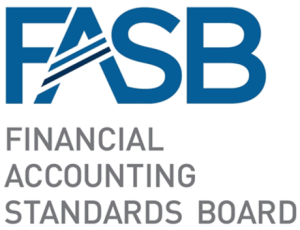The Private Company Council (PCC) met on Monday, June 24, 2024. Below is a summary of topics discussed by PCC and FASB members at the meeting:
- PCC Agenda Priorities: The PCC discussed its agenda priorities and expressed continued support for conducting research in the following areas identified at the April 2024 PCC meeting: credit losses—short-term trade accounts receivable and contract assets, debt modifications and extinguishments, presentation of conditional retainage and overbillings as contract assets and liabilities, and lease accounting simplifications such as practical expedients or accounting alternatives.
- PCC members discussed the challenges of applying Topic 326, Financial Instruments—Credit Losses (CECL), to short-term trade accounts receivable and contract assets and what solution could address those challenges. PCC members discussed several potential solutions including (1) permitting a private company to exclude the evaluation of reasonable and supportable forecasts or (2) allowing for the collection of receivables after the balance sheet date but before the financial statements are available to be issued to be considered in measuring expected credit losses at the balance sheet date. PCC members also discussed the types of assets that might be within the scope of a potential private company alternative.
- PCC members discussed the costs and complexities in applying Subtopic 470-50, Debt—Modifications and Extinguishments. PCC members suggested that outreach be conducted with private company financial statement users to understand their views on the different financial reporting outcomes that can arise when applying Subtopic 470-50 to term loans that are exchanged or modified.
- PCC members expressed support for providing private companies in the construction industry with an option for presenting conditional retainage and overbillings gross on the balance sheet. PCC members and FASB staff also discussed stakeholder feedback obtained to date on this issue and whether additional outreach with the construction industry and sureties may be needed.
- PCC members discussed forming a working group to identify specific issues in Topic 842, Leases, for the PCC to conduct further research. PCC members preliminarily discussed areas of ongoing challenges in applying the leases guidance, such as embedded leases and lease modifications. PCC members also discussed how they could assist with the FASB’s leases post-implementation review activities.
- Topic 815—Hedge Accounting Improvements: FASB staff provided PCC members with an update on the project, including a brief overview of improvements that the Board is proposing to similar risk assessments in cash flow hedges, hedging forecasted interest payments on choose-your-rate debt instruments, and cash flow hedges of nonfinancial forecasted transactions. Overall, PCC members generally agreed with the Board’s decisions, noting that the forthcoming proposed amendments will simplify the guidance, make it easier to qualify for and apply hedge accounting, and will be appreciated by private company preparers.
- Induced Conversions of Convertible Debt Instruments (EITF Issue No. 23-A): FASB staff summarized the key proposed amendments in the proposed Update, Debt—Debt with Conversion and Other Options (Subtopic 470-20): Induced Conversions of Convertible Debt Instruments, comment letter feedback, and next steps. PCC members asked about the effects of the proposed amendments on certain debt arrangements and about next steps in the Board’s redeliberations.
The next PCC meeting is scheduled for Tuesday, September 24, 2024.
Thanks for reading CPA Practice Advisor!
Subscribe Already registered? Log In
Need more information? Read the FAQs




